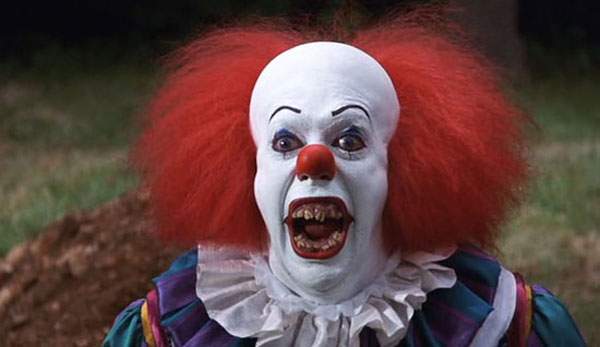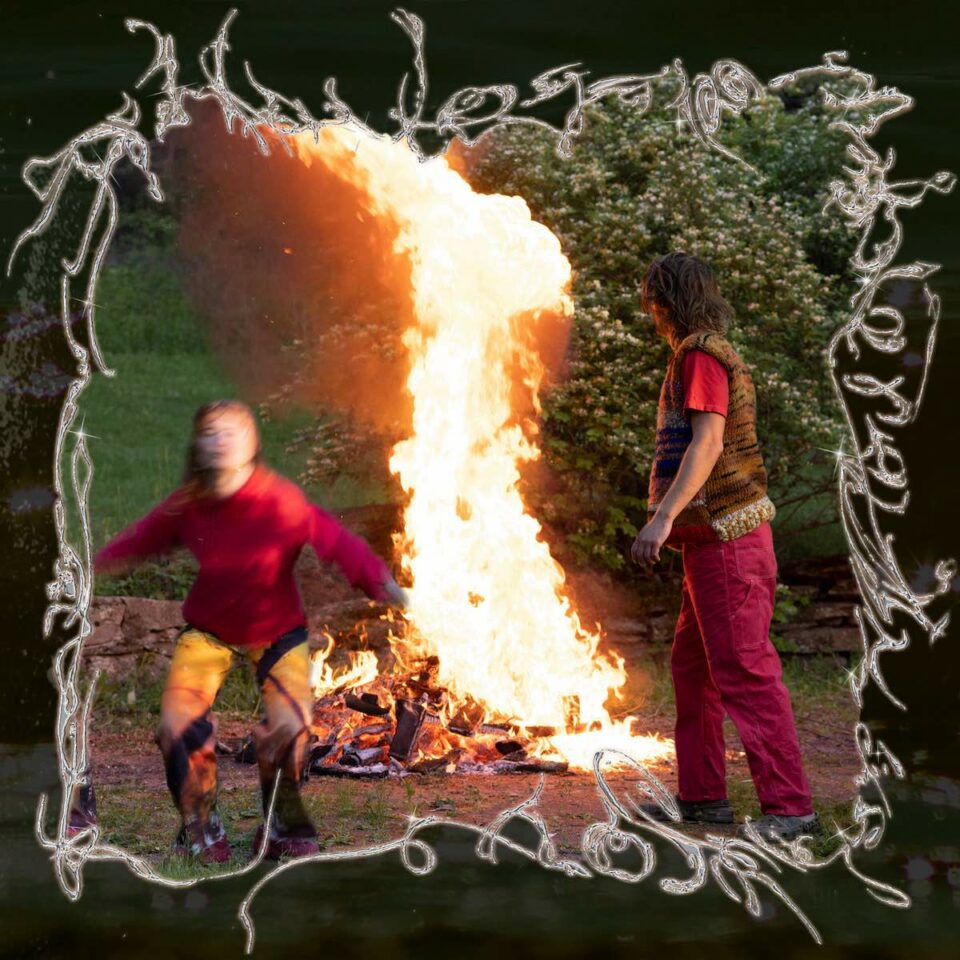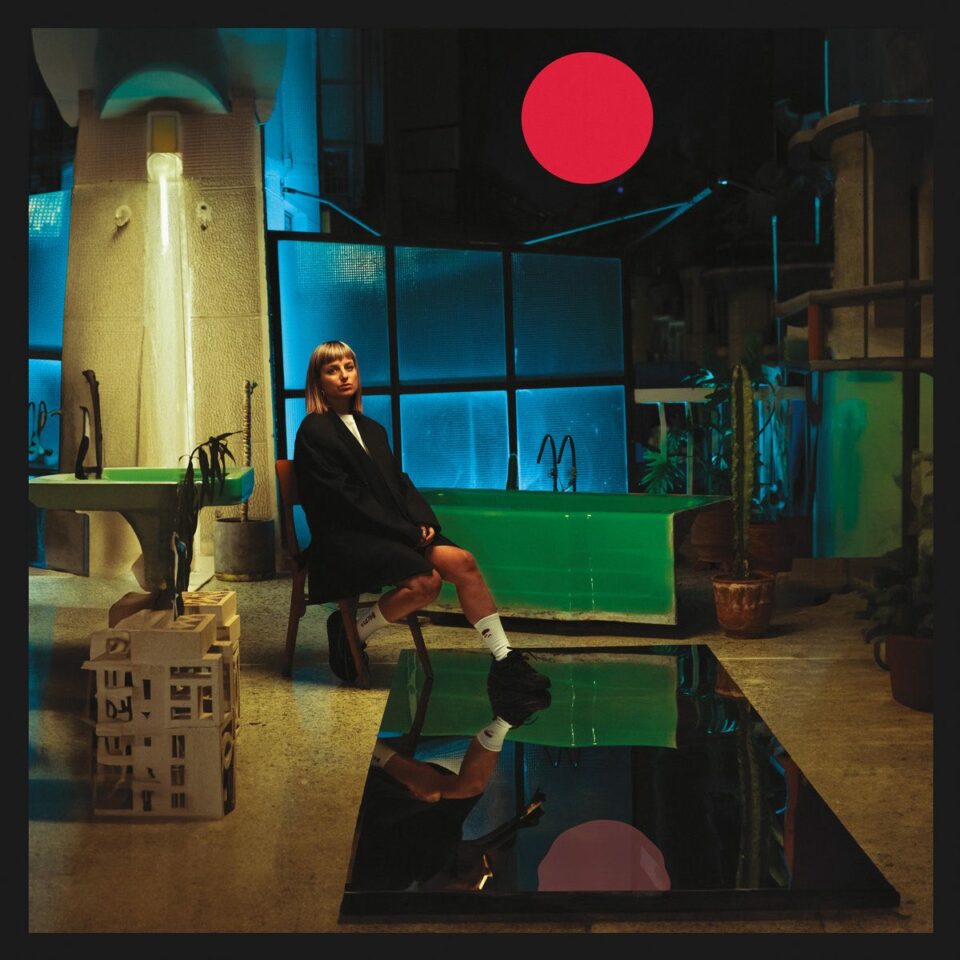FLOOD’s weekly Pop Culture Cure offers an antidote—or seven—to the most upsetting developments of the past week. (Because therapy’s expensive, and entertainment’s not.)
Creepy clowns are all over the news this week. Literal creepy clowns, and—god damn it we’re all gonna die (but probably not via creepy clowns, because they’re probably not an actual thing). This is quite disheartening, in the way that irrational hysteria tends to be, but it’s also sad because there is already so very much to be legitimately afraid of without resorting to menacing figures who have little hope of ever inflicting any real-world harm, burdened as they are by their outsized footwear. So let’s put our focus where it belongs, on the fears that we should have, and put aside the ones we should not. Let’s get back to what we’re really afraid of: insects, nature, and each other.
Exploits our justified fear of: spiders.
Arachnophobia was produced by Steven Spielberg’s Amblin Entertainment, and you can feel that influence throughout. It will make you nostalgic not only for childhood, but also for a time when horror movies could focus on simple terrors (sharks! spiders! robo vampires!) and thrilled with surprises rather than sadism. And although it’s got a sense of humor and plenty of charm, there’s a reason we’re afraid of spiders—it’s because they look like demons that have crawled out of a long-neglected crawlspace to Hell—and this movie capitalizes on this fact with sufficient force to give me, at least, a very bad case of the Jimmy legs for hours afterward.
Exploits our justified fear of: the criminal justice system (especially in Italy).
Have you guys watched this yet? Holy god. It’s one thing to live in a system like we have here in America, where cops and DAs often fall prey to their own eagerness to convict; it’s another to live in Perugia, where this fucking clown of a prosecutor is free to both openly impersonate Sherlock Holmes and openly persecute people for the roles that he has arbitrarily thrust upon them (on the basis of wild, utterly speculative fantasies that have more of a basis in genre fiction than they do in the evidence at hand). There are plenty of villains in this film, but no one is more baldly villainous (nor more transparently ridiculous) than this scowling old grump. PS: all the credit that Mignini would normally get for wearing such beautiful quilted jackets is wiped out by the moment when we see him stick an actual pipe into his actual mouth.
Exploits our justified fear of: roommates.
What the hell happened to stalker movies? They were a big thing for a while, remember? And they were super fun! Let’s bring that back instead of, say, Treasure Trolls. Single White Female is a classic entry in the genre, and of course it made the genius decision to up the terror quotient by putting the focus on a roommate rather than on a random obsessive. There are many circles in the hell of shared apartments, but a stalker roommate is indeed among the most horrific.
Exploits our justified fear of: nature.
Burden of Dreams follows Werner Herzog’s attempt to make Fitzcarraldo—a movie about an impossible man attempting to do an impossible thing: namely, build an opera house in the bowels of the Amazon jungle. Most people (slash everyone and -thing else on Earth except for perhaps two native bug species) would shoot such a movie on a set, but Herzog not only decided to film on location but also attempted to haul a real, actual steamship up a real, actual hillside (not made of water, in case that wasn’t clear) using only the most rudimentary tools. That was difficult, but so were the warring Amazonian tribes, the bugs, the diseases, the cast changes, the heat, the near-insanity, the actual insanity, and the director himself, who is at the center of everything. His famous diatribe about the “obscenity of nature” suggests that the only thing more fearsome than an untrammeled wilderness is an unfiltered Herzog. (Cf. My Best Fiend for more.)
This is his dream, after all. Not every art-house film costs this much, of course, but as a metaphor for artistic ambition and its cost, it is just about perfect.
Exploits our justified fear of: ourselves.
The idea that we might be crazy is a legitimately terrifying idea—nor is the idea that uncommon, I’d suspect. And although Jacob’s Ladder may not be Hamlet, it’s a pretty excellent portrait of that tension between the certainty of our own experiences and the profound self-doubt that isolation can sew. (It’s also just a really solid allegorical horror movie.)
Exploits our justified fear of: a country ruled by fear [cough cough].
Most dystopian films and novels rely on simply upping the quantity of mean people and mean technologies in order to show how bad things can get, but Children of Men takes the same idea of a hostile future and puts the culprit inside our bodies as well. In this world, women can no longer have children. And in the film adaptation of P.D. James’s incredible genre novel, Alfonso Cuarón manages to reflect the intimacy of this particular brand of pessimism by making the camera an almost living participant in the drama. Theo, the cynical main character played by Clive Owen, has been enlisted to help the earth’s great hope—a miraculously pregnant young woman—make her way to science, safety, and protection. It’s not an easy journey—beset by a paranoid state apparatus, unpredictable rebel forces, and simple chaos—but it’s definitely a trip worth making. The dystopian future has never felt so real, nor so close.
Exploits our justified fear of: the unknown.
It’s a fairly hackneyed notion, that we fear what we don’t know, but here that truism lands with an emotional force that is absolutely devastating. I honestly think this might be the scariest movie I’ve ever seen, and it could be David Fincher’s best, and the fact that it shows so little and asserts even less makes that quite the accomplishment indeed. I will definitely not be watching this on Halloween, and I mean that as a compliment. FL









